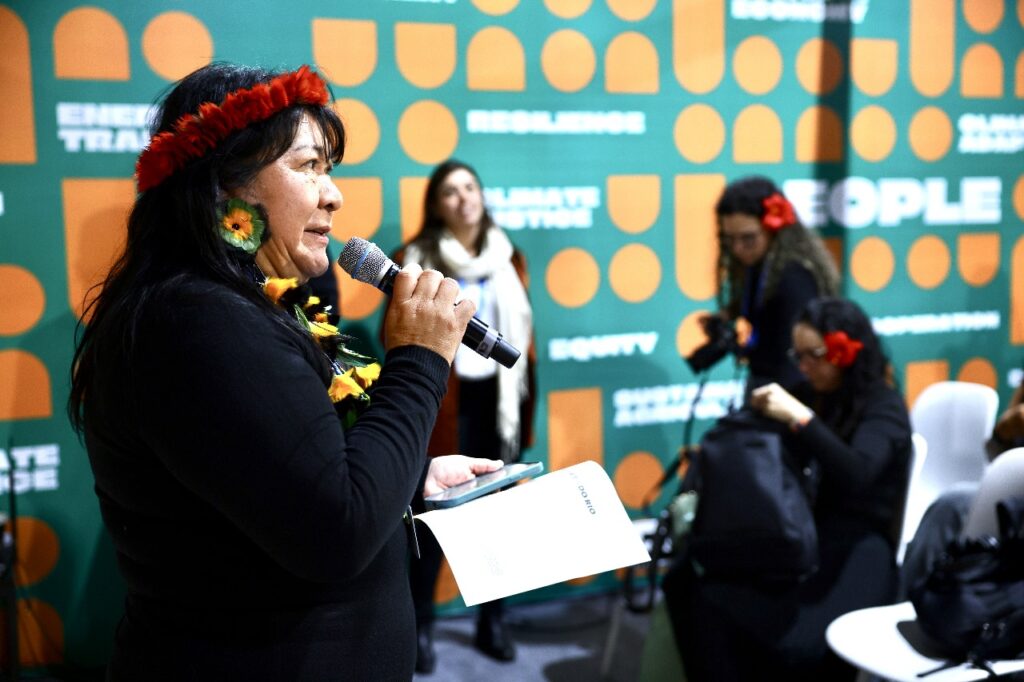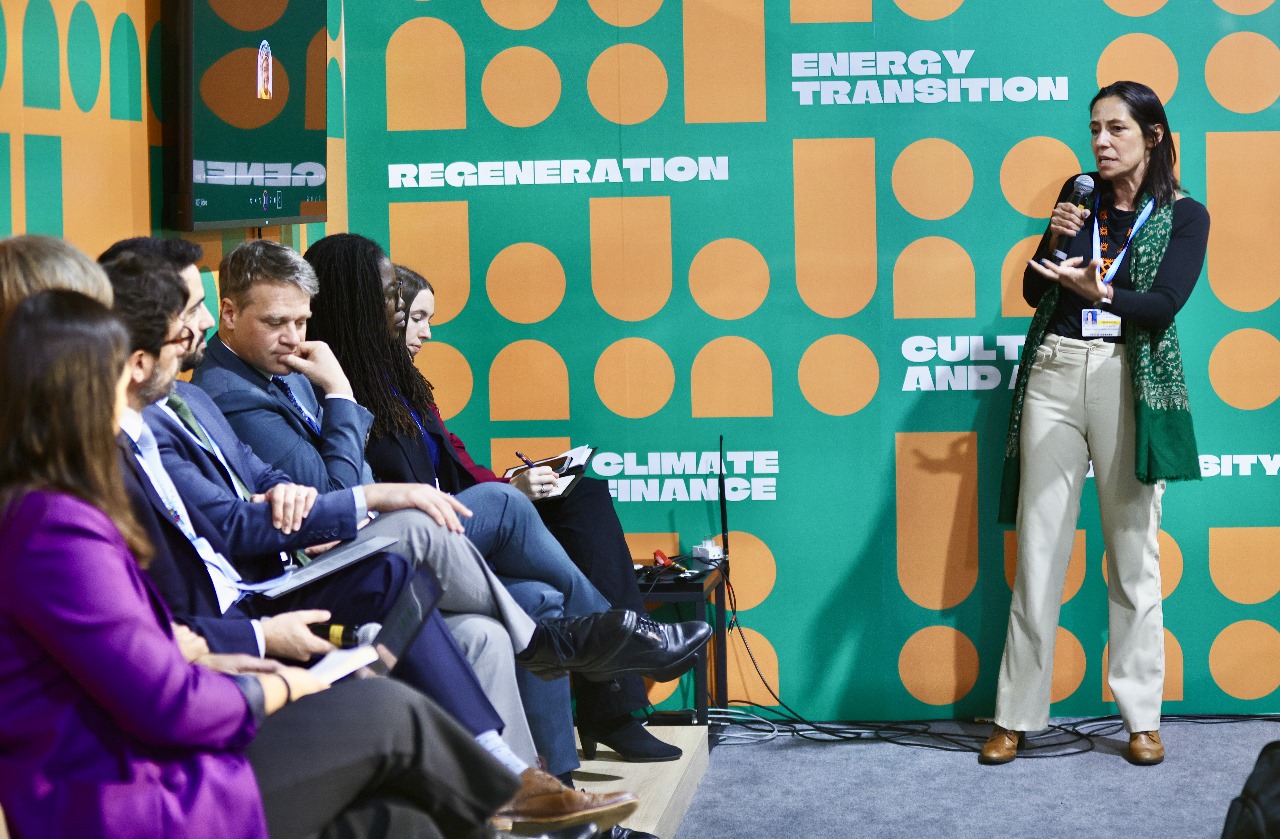While COP29 seeks an agreement on climate finance that balances the developing countries’ needs with the developed countries’ financial availability, a panel in the Regional Climate Foundations Pavilion showed a practical example of a mechanism to coordinate climate investments.
The event presented the Brazil Climate and Ecological Transformation Investment Platform (BIP), and brought together experts from various fields, including government representatives, financial institutions, think thanks, and civil society. “Country platforms as BIP are tools to help countries identify their pipelines, develop strategies to mobilise resources and achieve climate goals”, introduced Maria Netto, the executive director of the Brazilian Instituto Clima e Sociedade, who moderated the panel.
The concept of country platforms is not new — the G20 has been touching it for some years, and there were some previous initiatives developed under this idea. But the current approach is different, and so are the results that it can achieve. “In general, country platforms tended to be more vertical and oriented towards the interests of the donor. Brazil reversed this and built its own platform based on national interests”, explained Ivan Oliveira, from the Brazilian Ministry of Finance.
It was under the Brazilian presidency that the G20 developed this new approach of the concept of country platforms — and the recommendation that countries adopt it as a tool to access financial resources to achieve the goals of the Paris Agreement. “The NDCs can transform hole sectors, but it is a big challenge to create and support investments for the transition”, explained Asger Garnak, one of the authors of a study that led to the current concept for country platforms.
This study established the good practices that should guide the development of a country platform. According to the study, they need to be country-owned and country-led, and be designed and implemented in line with climate priorities. “It is about the quality of finance, it matters where do the countries need finance”, completed Dileimy Orozco, another author of the study.
Guided by this idea, Brazil launched it country platform — BIP — last October. In BIP, the government defined criteria to accept projects from key sectors and aligned with the country’s climate and development goals. Once accepted by the platform, those projects would be prioritized, and the platform will work to mobilise national and international capital to support the transition to a low-carbon and climate-resilient economy. “It is a platform built from the inside to outside. Brazil set up the platform according to its interests, looking at its national and sectoral planning, choosing the sectors and sub-sectors that would go on the platform”, detailed Oliveira.
Brazil gave the priority to projects focused on nature-based solutions, bioeconomy, energy, decarbonisation of industry and urban mobility. Some projects have already been approved and are now seeking funds, including the production of renewable fuels from macauba (a Brazilian palm fruit), the restoration of areas in the Amazon and Atlantic Forest biomes, the implementation of the first industrial-scale green fertiliser plant in Brazil, the development of a green hydrogen plant, and the low-carbon extraction of rare earth elements.
“This subject connects perfectly the COP29 to the COP30”, said Oliveira, introducing Brazil expectation that other countries develop their own country platforms by the next UN Climate Conference, that will happen in Brazil.
“This is only the beginning. We must keep working together to deliver impact and just transition”, concluded Maria Netto.
First round on NCQG disappoints, but civil society is still confident
Another panel held in the pavilion revealed what members of civil society who are closely following the negotiations on the new climate finance targets think about the current status of the negotiations. The New Collective Quantified Goal on Climate Finance, also known as NCQG, is the main negotiating item at the Baku Climate Conference, and will provide the necessary funding to achieve the Paris Agreement’s objectives.

“Despite minimally contributing to the emergency of climate change, the developing nations face most of the consequences”, said Enéas Xavier, the International Projects Coordinator at LACLIMA. “So, finance is required”, completed.
He remembered that this is the first COP negotiation developed after the confirmation that the annual funding of 100 billion to contain, mitigate and adapt countries to the climate crisis has been met. “However, this is not enough”, claimed. But the new goal is far from a consensus. “The only agreement in the first round of negotiation was that everyone disagreed”.
On the panel, the three speakers agreed. Isabela Rodas Messias, a specialist in climate finance at Instituto Talanoa, Ana Mulio Alvarez, a researcher at E3G focused on the UNFCCC and Joenia Wapichana, an indigenous woman who is now the head of the indigenous agency from the Brazilian government, Funai, called the audience attention to hear the local voices of the impacted population.
“We need to have the more vulnerable populations in mind”, said Messias. “An agreement is possible, if the developed countries look to the reality. Bi if they do in the business as usual model is quite impossible”, complemented Alvarez.
“To make a difference in the process, you must support indigenous peoples, including the access to finance, to justice, assuring their presence in spaces where the decisions are made”, concluded Wapichana.

